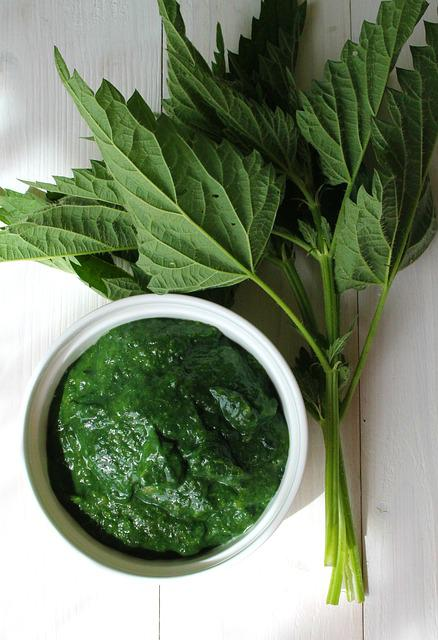When most people hear the word “folate,” they probably think of its role in pregnancy. And while it is certainly important for pregnant women and their babies, folate also has a host of other health benefits. In this post, we’ll look at some key ways that folate can improve your health like dietary supplements. We’ll also explore how to ensure you’re getting enough folate in your diet. So read on to learn more about this important nutrient!
Also read: 11 MOST COMMON SYMPTOMS OF HYPERTHYROIDISM

Image credit: pixabay.com
What Is Folate, And What Does It Do For The Body?
Folate is a water-soluble B vitamin mainly found in leafy green vegetables and fruits. It is important for the metabolism of nucleic acids and the synthesis of DNA. Folate is also necessary for the maturation of red blood cells. Folate deficiency can lead to anemia and other health problems.
It is recommended that all women of childbearing age take a daily folic acid supplement, the synthetic form of folate, to reduce the risk of congenital disabilities. Folate is important for pregnant women because it helps prevent developing a baby’s neural tube defects. Folic acid fortification should continue through the first trimester of pregnancy. Women planning to become pregnant and those who are already pregnant should consume a diet rich in folate-containing foods, such as leafy green vegetables and fruits, or take a daily supplement of 400 micrograms of folic acid.
The Health Benefits Of Folate
Folate, also known as vitamin B9, is a water-soluble vitamin found in various foods. Leafy green vegetables, legumes, nuts, and seeds are all good sources of folate. This vitamin is important for the proper development of the neural tube and plays a role in DNA synthesis and repair. A lack of folate can lead to anemia and congenital disabilities. Folate is also important for pregnant women as it helps prevent certain congenital disabilities.
Additionally, this vitamin may help reduce the risk of heart disease and certain types of cancer. For these reasons, adults should consume 400 micrograms of folate per day. Some foods are fortified with folate, and supplements are also available.
Also read: 15 WARNING SIGNS OF POOR CIRCULATION

Image credit: pixabay.com
Foods That Are High In Folate
Folate is a water-soluble B vitamin, and it is mainly found in dark green leafy vegetables and fruits. Food sources of folate include spinach, broccoli, asparagus, lentils, black-eyed peas, kidney beans, soybeans, Brussels sprouts, romaine lettuce, avocado, and oranges. Folate can also be found in fortified foods such as cereals, bread, and pasta.
When choosing these fortified foods, it is important to check the ingredient list to ensure that folate or folic acid is indeed an ingredient. Foods high in folate are important for pregnant women because a lack of folate can lead to a congenital disability called neural tube defect. The neural tube is the part of the baby’s brain and spine that forms in the first month of pregnancy.
For this reason, it is recommended that all women capable of becoming pregnant consume 400 micrograms (mcg) of folate daily from fortified foods or supplements or a combination of both. It is best to consume folate-rich foods before becoming pregnant because neural tube formation happens very early, often before a woman even knows she is pregnant.
Also read: 10 GENERAL SYMPTOMS OF HEMOCHROMATOSIS
How To Get More Folate In Your Diet
Folate is a water-soluble B vitamin that is naturally present in some foods, added to others, and available as a dietary supplement. Folic acid is the synthetic form of folate found in supplements and added to fortified foods. The body needs folate to make DNA and other genetic material. Folate also helps the neural tube close properly during the early development of the baby’s nervous system.
Women who are pregnant or might become pregnant should get 400 micrograms of folate (also called folic acid) a day from fortified foods, supplements, or both to help prevent major congenital disabilities in the baby’s brain and spine. You can get more folate in your diet by eating leafy green vegetables, legumes, nuts, and seeds. You can also find it in fortified breakfast cereals, bread, and other grain products. Check the nutrition label on foods to see how much folate they contain.
The percent Daily Value (%DV) for folate is 400 micrograms daily. To get the amount of folate you need, look for foods high in %DV and eat those foods throughout the day. Supplements can also help you get enough folate if you cannot get enough from food. Talk to your healthcare provider if you are thinking about taking supplements like vitamin B12 supplements.

Image credit: pixabay.com
Folate And Folic Acid supplements
Folic acid and folate are two different forms of water-soluble vitamin B9. Folate occurs naturally in many foods, while folic acid is the synthetic form of the vitamin that is found in supplements and added to fortified foods. Both forms of the vitamin are important for pregnant women to take because they help to prevent certain birth defects of the brain and spine. In addition, folate is important for cell growth and DNA synthesis, so it plays a role in various processes throughout the body.
For example, it helps to make red blood cells and convert homocysteine into methionine. Some people may need to take supplements if they have trouble getting enough folate from their diet. For example, people with certain medical conditions, such as celiac disease or Crohn’s disease, may have difficulty absorbing folate from food. In these cases, the office of dietary supplements may be necessary to ensure that enough of the vitamin is available for the body’s needs.
Also read: FOODS TO EAT AND AVOID ON A FATTY LIVER DISEASE DIET
The Risks Associated With Not Getting Enough Folate
Folate is a water-soluble vitamin mainly found in leafy green vegetables and fruits. It is important for the growth and development of red blood cells and helps prevent anemia. Folate also helps to prevent congenital disabilities of the brain and spine. Pregnant women need 400 micrograms of folate (also called folic acid) daily. Good sources of folate include black-eyed peas, lentils, oranges, spinach, and broccoli.
A folate deficiency can lead to anemia, which can cause fatigue, weakness, and pale skin. A severe folate deficiency can also lead to congenital disabilities of the brain and spine. In pregnant women, a folate deficiency can also cause the baby to be born with low birth weight. Getting enough folate is especially important during the first three months of pregnancy when the baby’s neural tube is forming. Folic acid supplements are recommended for all women who can become pregnant.
Conclusion
Folate is a water-soluble vitamin that is important for the growth and development of red blood cells and helps prevent anemia. Folate also helps to prevent cardiovascular disease, cancer risk, and congenital disabilities of the brain and spine. Pregnant women need 400 micrograms of folate (also called folic acid) daily. Good sources of folate include black.



